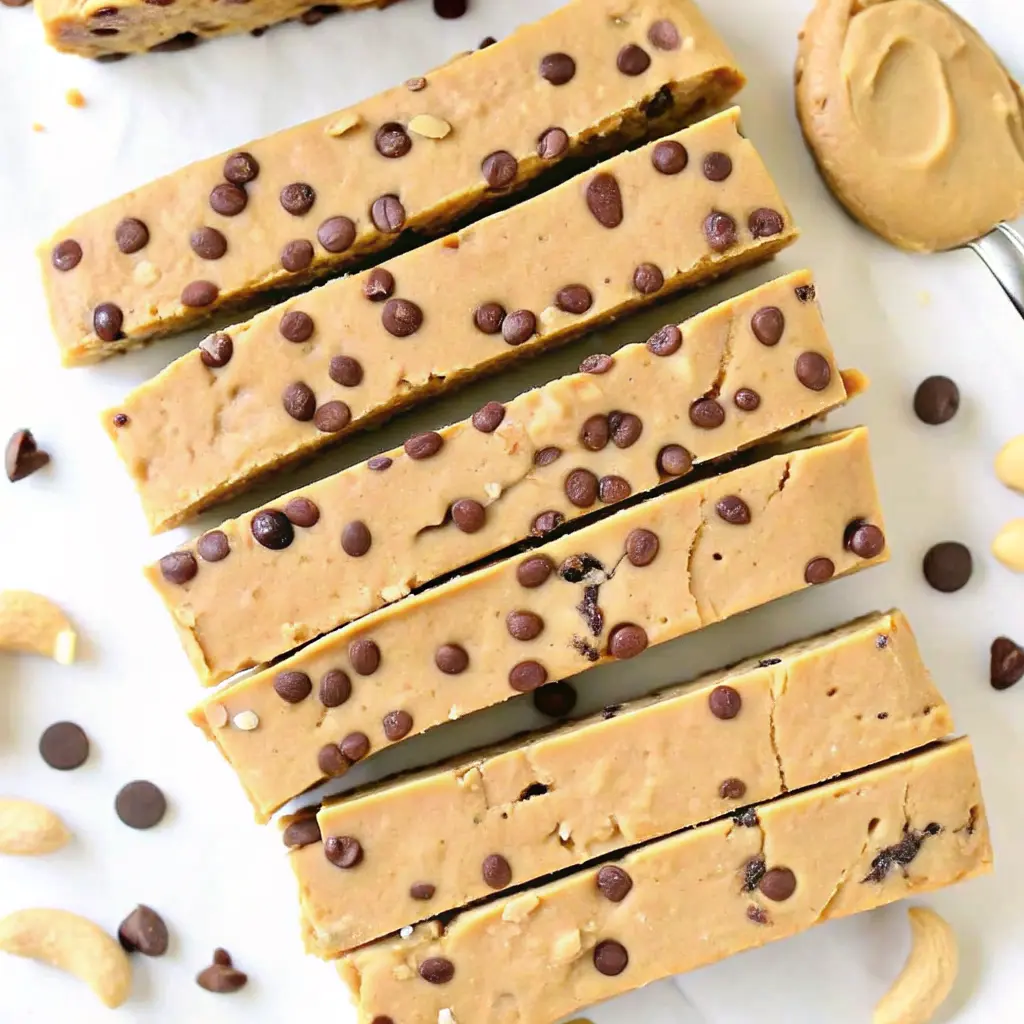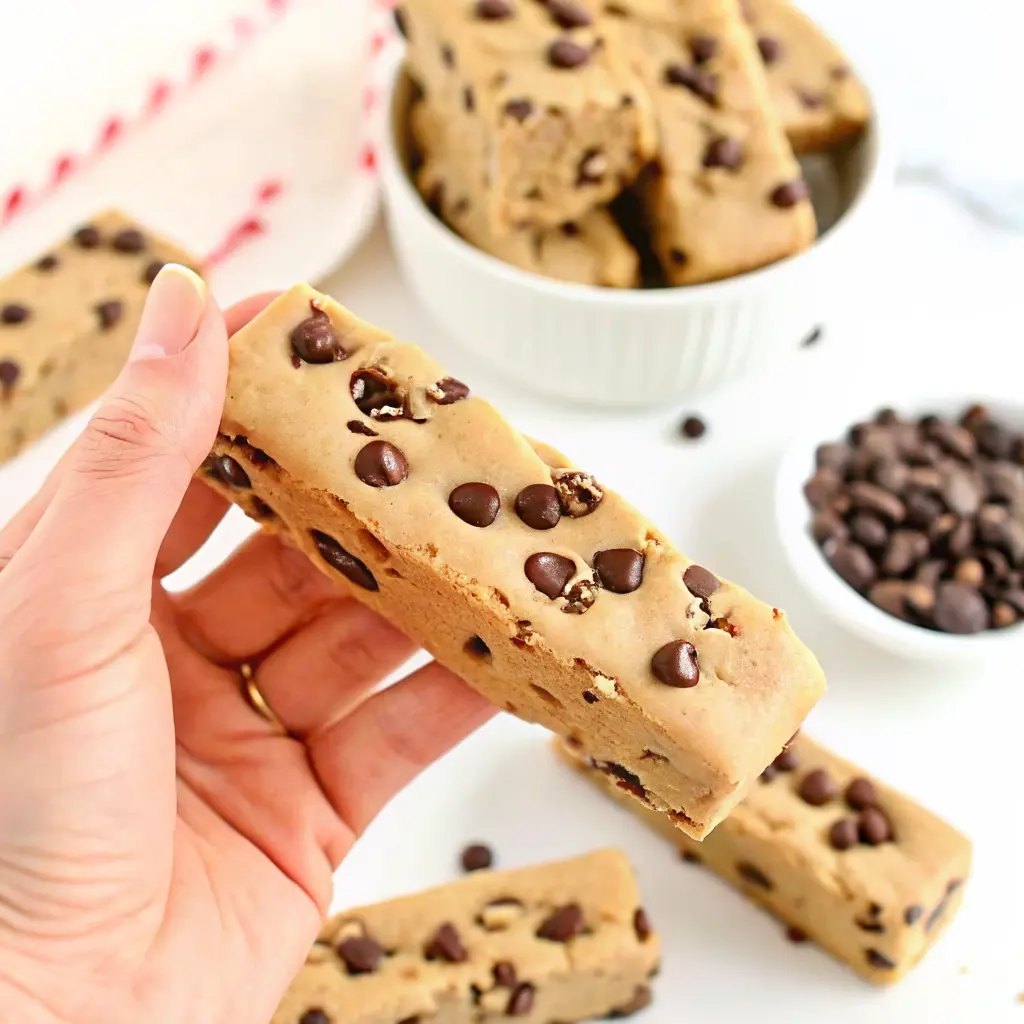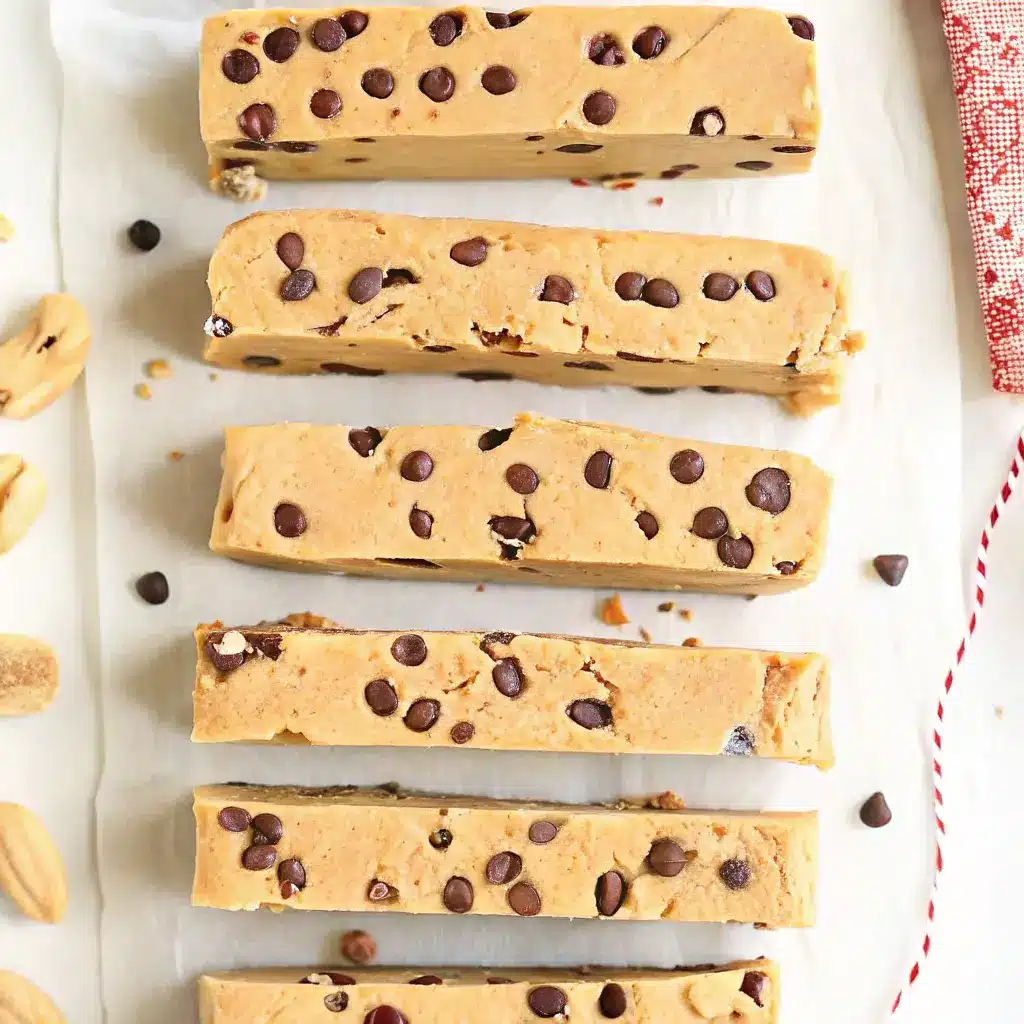Cookie dough protein bars might sound like an indulgent treat, but they can actually be a smart snack choice—if you know what to look for. In this article, we’ll break down the truth about cookie dough protein bars: what makes them healthy, which ones are worth buying, and how homemade versions can fit into your daily routine. Whether you’re aiming for weight loss, more energy, or a post-workout refuel, we’ve got you covered. By the end, you’ll know exactly how to satisfy your sweet tooth while keeping your goals on track.
Table of Contents
Table of Contents
For more follow me on Facebook & Pinterest

Why I Fell in Love with Cookie Dough Protein Bars
A Sweet Start in My Kitchen
I still remember sneaking tastes of raw cookie dough from the mixing bowl in my grandmother’s kitchen. That warm smell of vanilla and chocolate chips? Pure magic. But years later, when I started focusing more on health and fitness, I had to find ways to enjoy those nostalgic flavors without the sugar crash or guilt. That’s how I stumbled into cookie dough protein bars—my not-so-secret obsession.
At first, I bought every brand I could find. Some were chalky, others had weird aftertastes. But once I figured out how to make my own and spot the good ones on store shelves, everything changed. Now, they’re my go-to for busy mornings, gym bag snacks, or late-night cravings. Trust me, once you find the right bar—or better yet, make your own—you won’t miss traditional cookie dough at all.
Why Cookie Dough Protein Bars Deserve a Spot in Your Pantry
These bars offer way more than convenience. The best cookie dough protein bars strike that perfect balance of flavor, texture, and nutrition. They typically blend protein (think whey, plant-based, or collagen) with nut butters, almond flour, and just enough sweetness to keep things interesting. They’re especially great if you’re trying to keep your snacks satisfying but still on the healthier side.
And yes, you can make them even better at home. One of my favorites is this edible protein cookie dough, which inspired my latest homemade bar recipe. Whether you’re baking your own or grabbing a box at the store, cookie dough protein bars are here to stay. Just take a peek at my sugar-free cookie dough and see how sweet healthy can be.
What Makes a Cookie Dough Protein Bar Healthy?
Breaking Down Ingredients: What to Look For
Not all cookie dough protein bars are created equal. Some are loaded with artificial sweeteners and fillers, while others keep things clean and nutritious. The key is knowing what to look for on the label. Start with the protein source—whey isolate, collagen peptides, or plant-based proteins like pea or brown rice are all great choices, depending on your dietary needs. Avoid bars that rely heavily on soy protein isolate or sugar alcohols like maltitol, which can cause digestive issues for some people.
The best bars also include healthy fats and fiber, often from almond butter, coconut flour, or flaxseed. These ingredients keep you full longer and help control blood sugar. Sweeteners like monk fruit, stevia, or a touch of honey are a better option than high-fructose corn syrup or cane sugar. Bonus points if you recognize most of the ingredients!
If you’re making your own, it’s easy to keep control. For example, this chocolate chip protein cookie recipe is one of my favorite ways to balance flavor and function.
Nutritional Profile: How It Supports Your Goals
Let’s break it down. A solid cookie dough protein bar typically contains:
| Nutrient | Ideal Range (per bar) |
|---|---|
| Protein | 10–20g |
| Sugar | 0–5g |
| Fiber | 3–8g |
| Net Carbs | 5–15g |
| Calories | 150–250 |
If your goal is muscle recovery, aim for higher protein. If you’re watching your weight, go for lower sugar and higher fiber. Want something more indulgent but still balanced? Try my cookie dough bites for a DIY option that keeps cravings in check.

Homemade vs. Store-Bought Cookie Dough Protein Bars
Why Making Your Own Cookie Dough Protein Bars Just Makes Sense
Making your own cookie dough protein bars isn’t just fun—it’s smart. You get full control over every ingredient, whether you’re adding clean protein, skipping added sugar, or going gluten-free. Unlike some packaged versions, homemade cookie dough protein bars don’t include preservatives, artificial flavors, or weird fillers. That means you can use high-quality whey or plant-based protein, real nut butter, and just the right amount of sweetness.
You also get to play with the texture—chewy, doughy, firm, or soft. Homemade bars can be tailored to your macros, whether you’re cutting carbs or fueling muscle growth. And they’re more affordable. Most store-bought cookie dough protein bars cost $2–$4 each. A batch at home will save you money and give you more control over taste and nutrition.
Try this gluten-free cookie dough as a base—it’s easy to adapt into bars. Want a richer bite? My cookie dough brownies are protein-packed and taste like dessert, with none of the guilt.
Comparing Store Brands of Cookie Dough Protein Bars
When life gets hectic, store-bought cookie dough protein bars are a lifesaver. The most well-known brand? Quest. Their cookie dough protein bar delivers 21g of protein, just 1g of sugar, and 14g of fiber. That’s a solid option if you’re focused on low-carb or keto-friendly snacks.
But are Quest cookie dough protein bars actually healthy? For many people, yes. They’re low in sugar, high in fiber, and packed with protein. Still, they include sweeteners like sucralose and erythritol, which some may want to avoid. Other cookie dough protein bars like RXBAR use dates and egg whites, offering a more natural profile. No Cow bars cater to vegans, using pea protein and stevia instead.
Texture matters too. Quest is chewy with bits of chocolate crunch. ONE bars are soft and candy-like, while RXBAR has a stickier, dense texture. Not sure what to try next? My chickpea cookie dough offers a creamy, plant-based take you can cut into bars and chill.
Whether you buy or DIY, cookie dough protein bars can be a tasty, nutrient-rich part of your daily routine—as long as you choose the right ones.
Choosing the Best Cookie Dough Protein Bars for Your Lifestyle
Weight Loss, Energy, or Dessert Craving? Choose Wisely
When you’re shopping for cookie dough protein bars, your daily goals should shape your choice. Trying to lose weight? Go for bars with around 150–180 calories, high protein (at least 10g), and low sugar. Look for fiber too—it helps you stay full longer. Avoid bars with hidden sugar alcohols or unnecessary fillers. Some options even taste just like dessert without the crash. Bars like No Cow or a homemade version using almond flour and stevia are great picks.
If you’re fueling up for a workout or need a midday energy boost, higher-calorie cookie dough protein bars (200–250 calories) with balanced macros work well. They should give you lasting energy, not a sugar spike. Try my peanut butter protein cookies for a quick bite that won’t slow you down.
For cravings? Go ahead and satisfy them—but choose a better option. Cookie dough protein bars are perfect for this because they feel indulgent but are packed with protein. Try homemade versions using edible protein dough rolled into bite-sized bars.
Celebrity Picks & Snack Culture Trends
You might be wondering—what protein bars does Jennifer Aniston use? While she’s been known to partner with Vital Proteins and leans toward collagen-based bars and shakes, she also favors simple, natural ingredients. Many celebs choose cookie dough protein bars with real food sources—think dates, nuts, and quality protein.
Hollywood snack culture is also shifting toward function-first snacking: high-protein, low-sugar, and gut-friendly options that fit into a busy life. Whether you’re heading to Pilates or packing lunch for work, cookie dough protein bars are the kind of smart indulgence that even celebrities rely on.
Looking for more sweet yet smart treats? Try these sugar-free cookie dough recipes for a snack that tastes like dessert—but fits your goals.

Cookie Dough Protein Bars
Ingredients
Equipment
Method
- In a mixing bowl, combine almond flour, protein powder, and salt until evenly mixed.
- Add nut butter, honey or maple syrup, vanilla extract, and almond milk. Stir until a dough forms.
- Fold in mini chocolate chips until evenly distributed.
- Press dough firmly into a parchment-lined 8×8 inch pan to form an even layer.
- Chill in the refrigerator for at least 30 minutes to set.
- Cut into 8 bars. Store in an airtight container in the fridge or freezer.
Nutrition
Notes
Tried this recipe?
Let us know how it was!Is Quest cookie dough protein bar healthy?
Yes, Quest cookie dough protein bars are considered healthy for many people. They’re low in sugar (1g), high in protein (21g), and contain 14g of fiber. However, they do use sugar alcohols and artificial sweeteners, which may not suit everyone’s digestion or preferences.
Are protein bars actually healthy?
That depends on the ingredients and your goals. Many protein bars are healthy when they include whole food ingredients, high-quality protein, and minimal added sugar. Cookie dough protein bars, when made right, can be a balanced snack or meal replacement—just check the label for added sugars, fillers, or low-quality proteins.
What protein bars does Jennifer Aniston use?
Jennifer Aniston has been known to use protein products from Vital Proteins, especially collagen-based supplements and bars. She tends to favor clean, simple ingredients and avoids overly processed options. While not confirmed, bars with natural sweeteners and real protein sources would likely be in her snack rotation.
What is the healthiest protein bar for weight loss?
The healthiest protein bar for weight loss is one with high protein (10–20g), low sugar (under 5g), moderate fiber, and fewer than 200 calories. Some great options include homemade cookie dough protein bars or clean-label brands like No Cow or RXBAR, depending on your dietary needs.
Conclusion
Cookie dough protein bars don’t have to be a guilty pleasure—they can actually support your health goals when made or chosen wisely. Whether you’re looking for an easy homemade recipe, a store-bought favorite, or a better way to fuel your day, these bars deliver the nostalgia of cookie dough with the benefits of real nutrition. Keep an eye on those labels, trust your taste buds, and remember: it’s okay to enjoy something that tastes like a treat while still doing your body good.
